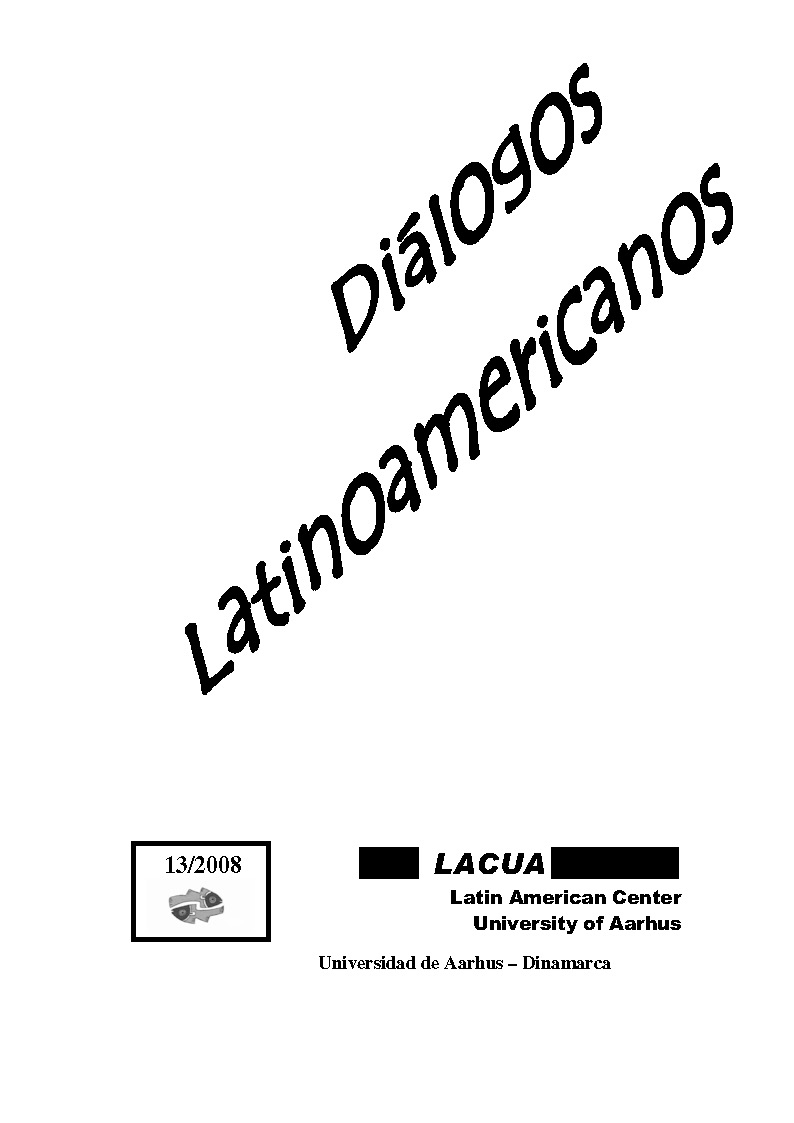Globalización y etnicidad en América Latina
el caso boliviano
DOI:
https://doi.org/10.7146/dl.v9i13.113610Keywords:
Americanization, indigenous groups, Bolivia, ethnicity, ethnonationalismAbstract
In the last decades, Latin America has experienced a process of
Americanization of its material and symbolic culture. The
ostentatious symbols of this process are the proliferation and
popularity of malls. On the other hand in the same period we have
been witness to the revival of the ethnicity of the indigenous
nations. The most emblematic example is Bolivia, where a well
known Indian leader is now President of the Republic.
At first sight, this process appears to be part of the
antiglobalization movement. On the contrary, the central thesis of
this article is that the indigenous resurgence has been possible to a
large extent because of the support rendered by international
groups and organisations, which in turn can be explained by the
central place that original peoples have attained in the western
imaginary. The renaissance of the indigenous question is a very
genuine product of globalization, as is Americanization. Even the
most radical versions of ethnonationalism, like the Aymara, would
not be possible outside the context of globalization.
References
Bigio Isaac, ”El nacionalismo radical aymara”,
www.geocities.com/novembrino2002/index.html
Bauer Arnold, Goods, Power, History. Latin America’s Material Culture. Cambridge
University Press, 2001.
Cáceres Gonzálo Quiero & Farías Soto Lorena “El espacio urbano: Efectos de las
grandes superficies comerciales en el Santiago de la modernización ininterrumpida
1982”, Ambiente y desarrollo, Vol XV, Nº 4, Diciembre, 1999.
Canessa Andrew, “Todos Somos Indígenas: Towards a New Language of National
Political Identity”, Boulletin of Latin American Research, Vol. 25, No 2, April
2006.
Canessa Andrew, “Contesting Hybridity: Evangelistas and Kataristas in Highland
Bolivia”, Journal of Latin American Studies 32.
Classen Constance, ”Sugar cane, coca-cola and hypermarkets. Consumption and
surrealism in the argentine Northwest” En: David Howes (edited by) Cross-
Cultural Consumption. Global Markets Local Realities. London and New York :
Routledge,1996.
Crabtree John, “Aymara ‘Nationalism’ and Land”. En (del mismo autor) Patterns of
Protest. Politics and Social Movements in Bolivia, London: Latin American
Bureau, 2005.
Cristoffanini Pablo Rolando La cultura del consumo en América Latina. En: Sociedad y
Discurso, nr. 10, otoño, 2006
Cuba, Jorge, “Agua dulce, victoria amarga”. El Correo, diciembre, 2000.
Cvetkovich and Kellner, D Thinking global and local. En Cvetkovich and Kellner, D
(editores) Articuling the Global and the Local, Westview Press, Boulder
Colorado, 1997.
Ericsson Eric, Identidad, Juventud y Crisis. Madrid: Taurus Ediciones, 1992.
Favre Henri, El indigenismo. México, D.F.: Fondo de Cultura Económica, 1998.
Fink Hans, “Identiteters identitet”, En: Identiteter i forandring (Hans Fink y Hans
Hauge, redacción) Aarhus Universitetsforlag, 1991.
Finol José Enrique, Globalización, espacio y ritualización: De la plaza pública al mall”.
En: Espacio Abierto, octubre-diciembre, año/vol. 14, número 004, Asociación
Venezolana de Sociología, Maracaibo, Venezuela, 2005.
Fuguet Alberto & Gómez Sergio, “Presentación del país McOndo”. En (de los mismos
autores) McOndo, Barcelona: Grijalbo Mondadori, 1996.
Gamio Manuel, Forjando Patria, Editorial Porrúa, México 1982 [Primera edición 1916]
Hall, Stuart, The question of cultural identity, en Hall, S. Held D. y McGrew T.
(editores)
Modernity and its Futures. Polity Press, Cambridge, 1992.
Gamio Manuel, Forjando patria. México D.F.: Porrúa, 1992 (primera edición Porrúa,
1916)
Halpern Pablo Los nuevos chilenos y la batalla por sus preferencias., Santiago de Chile:
Planeta, 2002.
Hylland Eriksen Thomas, Ethnicity & Nationalism. Anthropological Perpectives, pp.
29-31,
Pluto Press, 1993.
Seung T.K. (1982) Structuralism and Hermeneutics. New York : Columbia University
Press.
Sider Rachel, Multiculturalism in Latin America. Indigenous Rights, Diversity and
Democracy. New York: Palgrave, MacMillan, 2002
Silva Patricio, “The new political order in Latin America: Towards technocratic
democracies” En: Latin America Transformed. Globalization and Modernity.
Edited by Robert N. Gwynne and Cristobal Kay, London: Arnold ,1999.
Smith Anthony D., Towards a Global Culture? En Mike Featherstone (editor) Global
Culture. Nationalism, Globalization and Modernity, London: Sage Publications,
1994.
Tomlison John, Globalización y cultura. Oxford University Press México, 2001
Vargas Llosa Mario, La Utopía Arcaíca. José María Arguedas y las Ficciones del
Indigenismo, México D.F.: Fondo de Cultura Económica, 1996.
Wak, M (1994), Virtual Geography: Living with Media Events, Indiana Universtiy
Press, Bloomington and Indianopolis.
Willem Assies, Gemma van der Haar, André Hoekema (eds.) The Challenge of
Diversity. Indigeneus peoples and reform of the State in Latin America.
Amsterdam : ThelaThesis, 2000.
Downloads
Published
How to Cite
Issue
Section
License
Counting from volume 31 (2022), articles published in Diálogos Latinoamericanos are licensed under CC-BY 4.0. Read more about the license terms here https://creativecommons.org/licenses/by/4.0/.
No Creative Commons license applied on volumes 1-30. All rights reserved by the authors. Readers may download, read, and link to the articles, but they cannot republish the articles.
With the publication of volume 31 (2022), authors retain the full copyright to their articles and give Diálogos Latinoamericanos the right to the first publication. Authors also retain copyright to earlier versions of manuscripts, such as the submitted (pre-print) and the accepted manuscript (post-print).
Copyright to articles published in volumes 1-30 is held by the authors.





